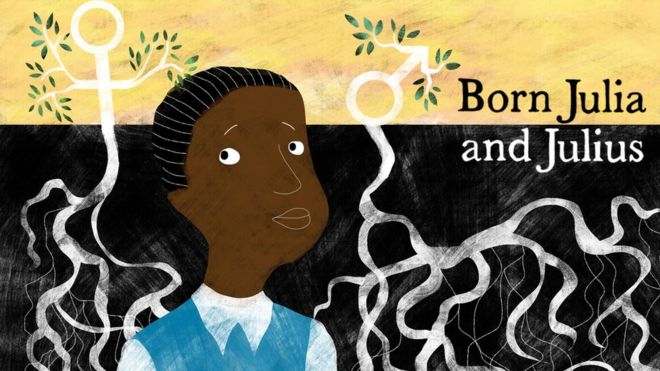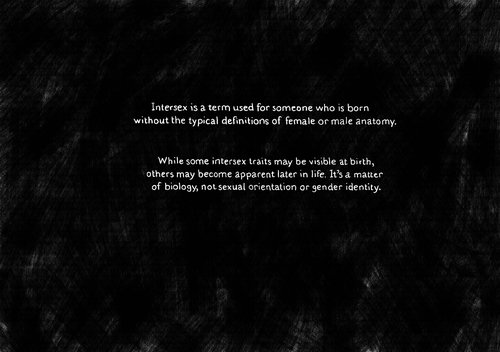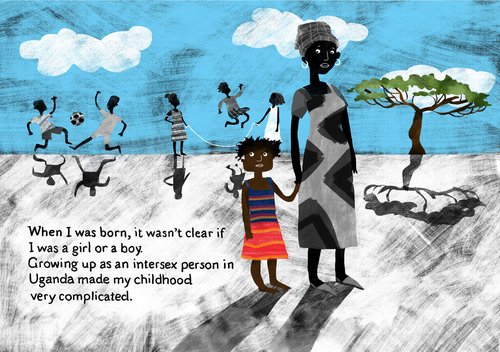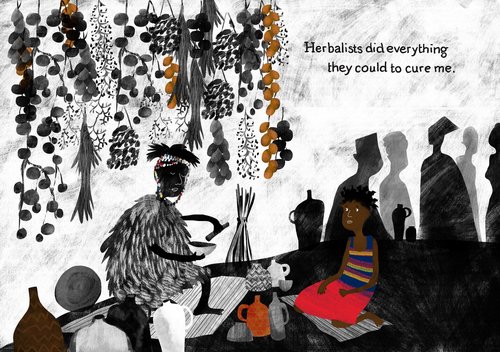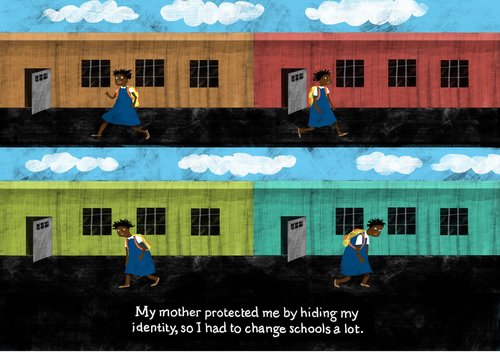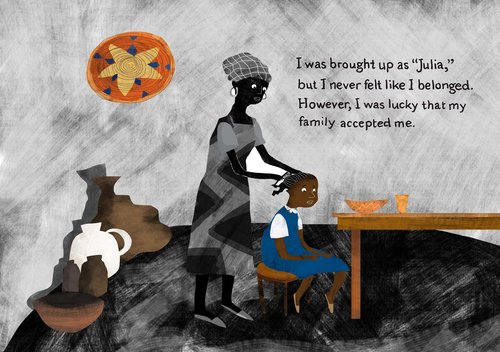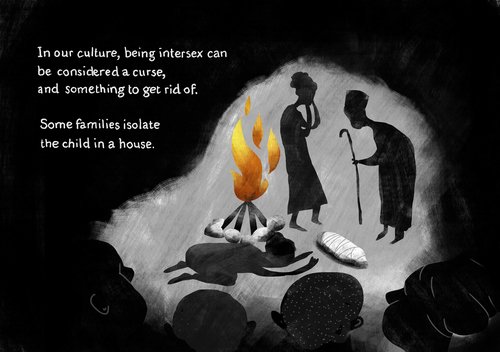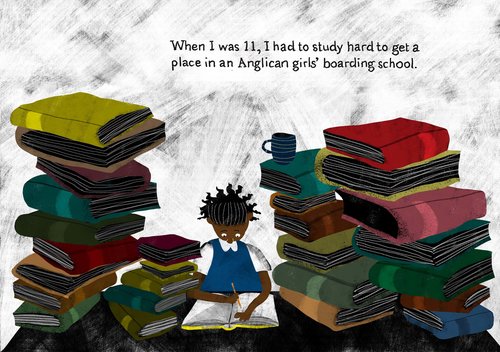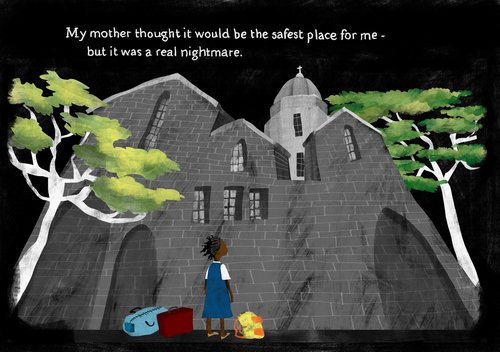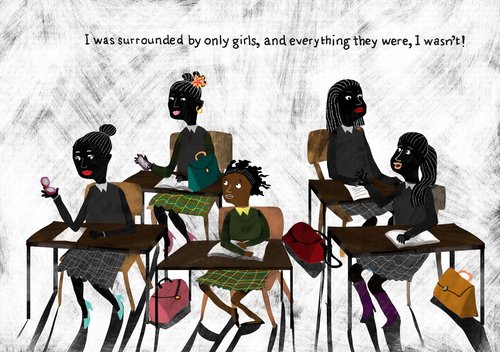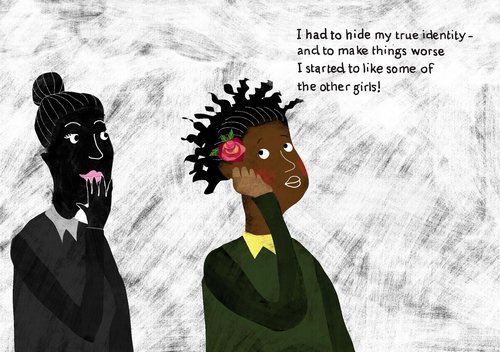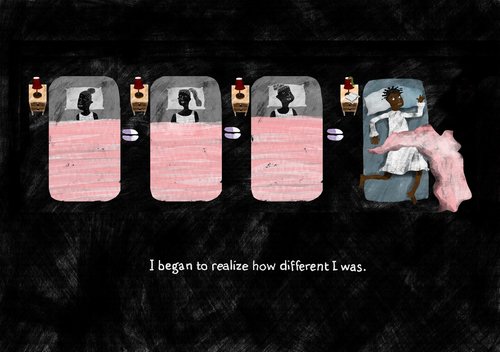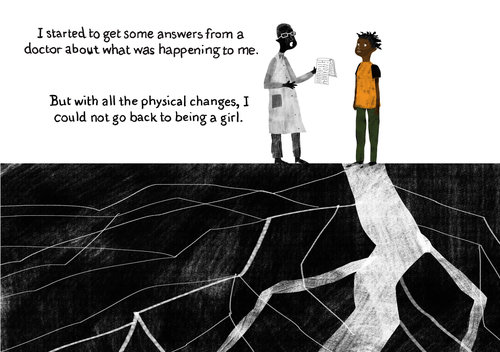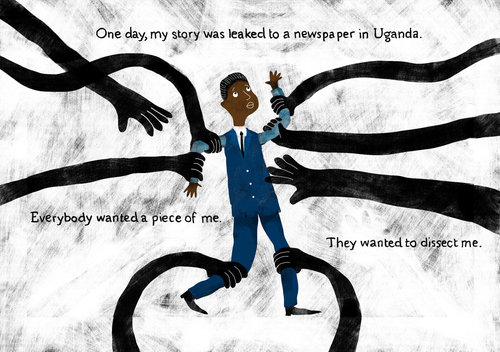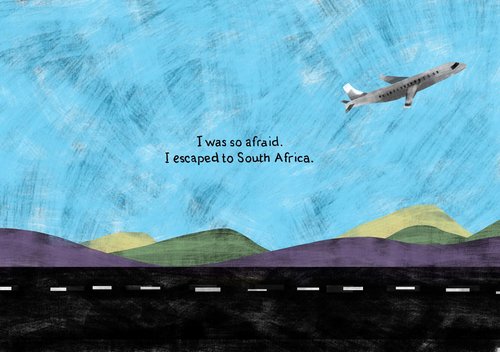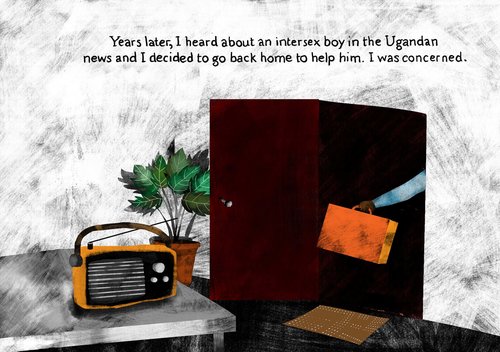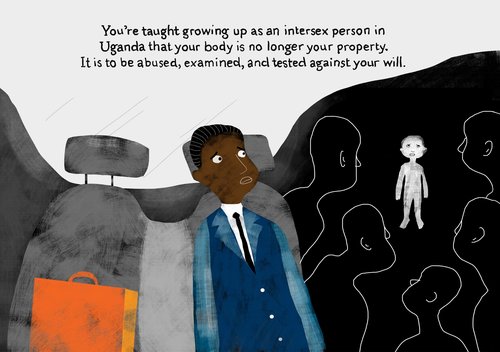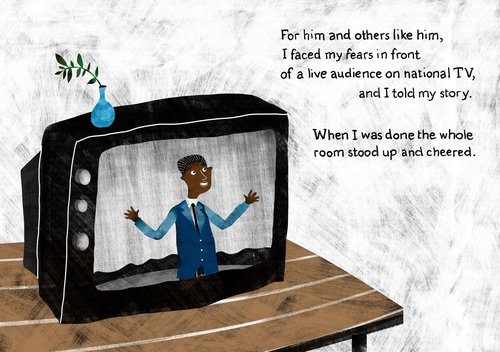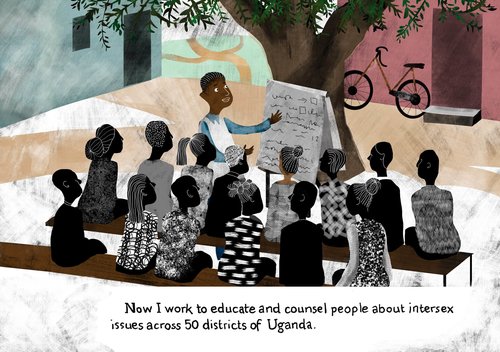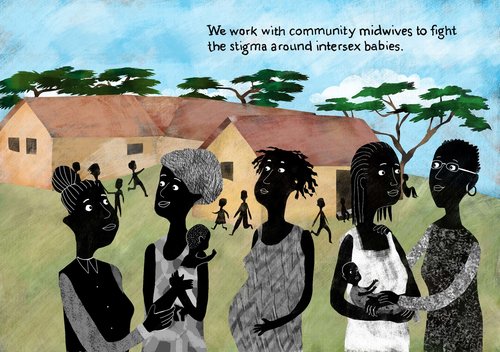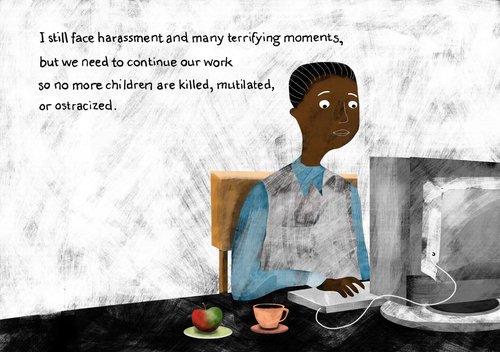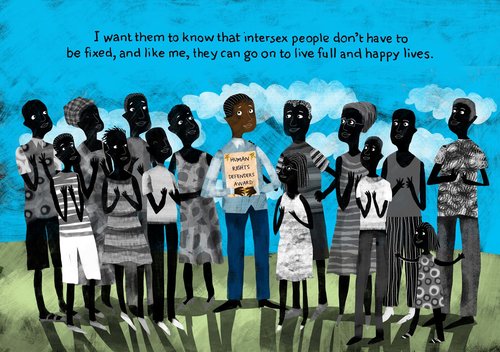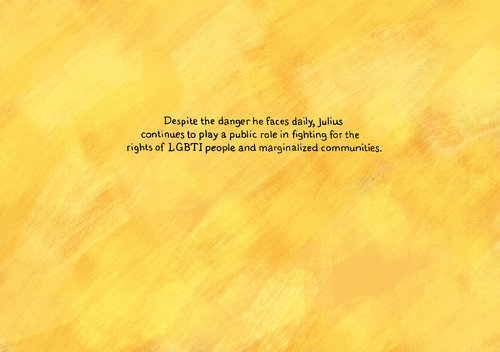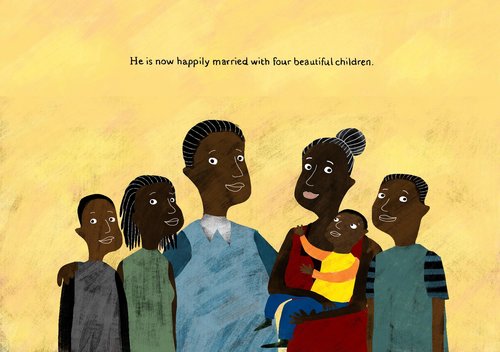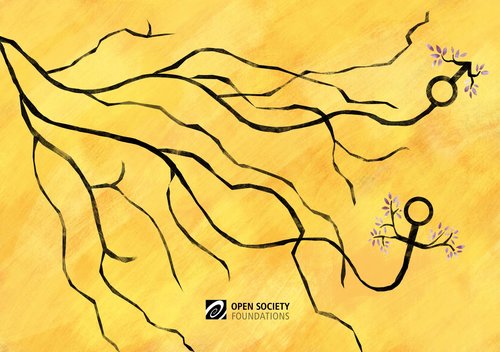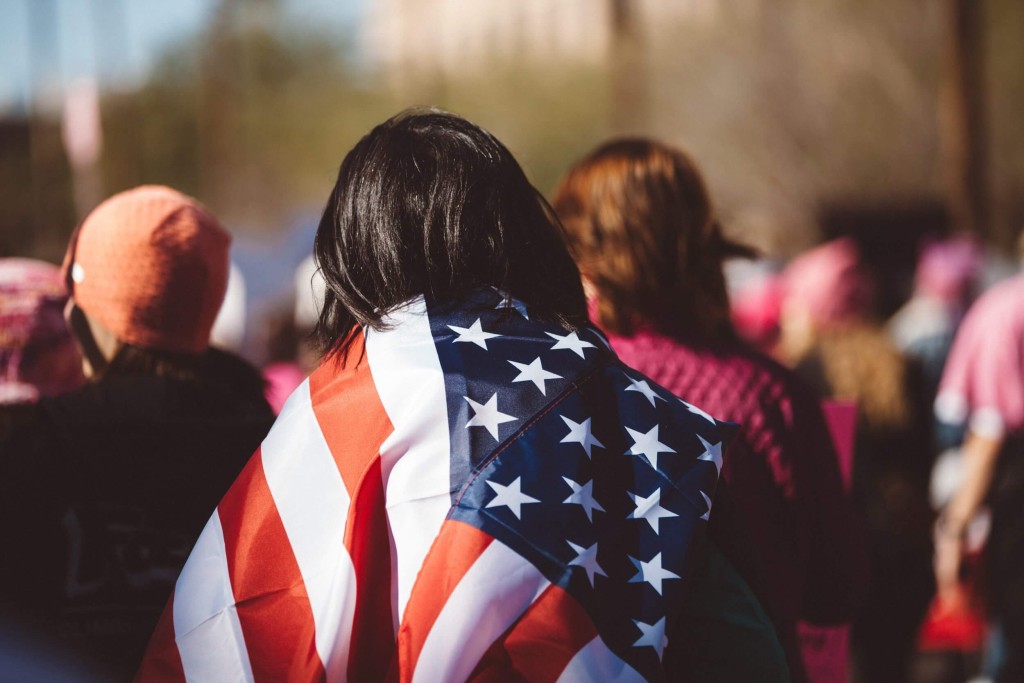Julia/Julius Kaggwa’s intersex life and activism remind us that the struggle for self-determination can be biological, cultural, political, communal.
KAMPALA, UGANDA — In a remarkably poignant and educational collaboration the Open Society Foundations and activist comics producer PositiveNegatives have crafted and presented an illustrated account of Julius Kaggwa’s precarious childhood in Uganda — from being born intersex, and being initially raised as a young female Julia or Juliette, to eventually permitting himself to be Julius, a male adult, then a husband, father of four children, and a rights and education activist.
The account is notable for the way it provides us with a strong sense of Julius/Julia’s cultural and religious encounters on the way to living a full life, as well as the medical, legal and political contexts for that difficult journey. The account is notable, too, for its comic panels, which vividly portray episodes from his life-long experience: confusion, concerned but secretive family support, exile within the Ugandan community and abroad in South Africa, return to help another intersex child in Uganda, and his shift to becoming a source of guidance, activism, and inspiration for the wider East African community.
Then there is Julius’ voice. It is best to read snippets of it below — presented as audio and text captions to the comic panels’ images.
A Narrative in Pictures
By the time Julius speaks to us in the panels above, he has earned the Human Rights First Award in 2010, and the Human Rights Defenders Award in 2011. He has become a full-time educator and Executive Director of the Support Initiative for People with Congenital Disorders (SIPD Uganda), an intersex health and rights organization that has been an important gathering point for the country and wider East African region.
So his voice has by now been honed not only by a traumatic and confusing childhood. Not only by a past period of exile. And not only by a response to an intersex child’s troubled public call (he later says, in an essay with The Guardian, that “he was the first person ever to look at me with eyes that said ‘you can help me’”). His voice in those animated comic panels has also been shaped by years as a teacher of children, parents and their communities, and increasingly as a speaker against legislative measures led by sectors of the state and church, whose efforts have risked once again making intersex existence in Uganda traumatic, precarious, if not frequently dangerous.
I became an activist after helping a young intersex boy, who was due to appear on the radio to try to raise money to have his breasts surgically removed. He was the first person ever to look at me with eyes that said ‘you can help me.’
— Julius Kaggwa, 2017
Julius' Voice, Heard
For Julius and other advocates, the most recent concern has been the Anti-Homosexuality Bill of 2014, and how it reveals a widespread tendency to imperil the intersex community by grouping them with identities of normally vital alliance. Nicknamed the “Kill the Gays Bill” due to death penalty provisions in the original version, the Act successfully passed through Uganda’s Parliament in December 2013, but with life sentences in place of death for those confirmed to be in same-sex relations. Uganda’s President Museveni signed the bill into law in February 2014. However, it was ruled invalid in August of that year by the Constitutional Court of Uganda, on procedural grounds. Plans to appeal were soon stalled. Per directive from the President, the government became concerned by a range of international responses to the Act, and went on to recommend that any newly introduced bill avoid criminalizing private, same-sex relationships between consenting adults.
If the bill, or any other legislative equivalent, were to be successfully resuscitated, the narrated experiences, educational work, and strident voices of activists like Julius will certainly become, once again, a necessary contribution to the ensuing national and international conversations.

